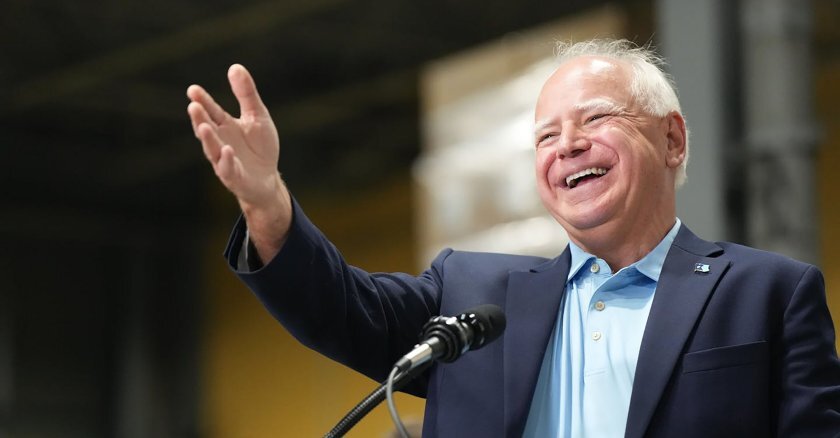Evans was the last living member of what the press called the “Three Musketeers”: governors Cecil Andrus of Idaho, Tom McCall of Oregon and Evans of Washington.
I call that period when their terms overlapped “the golden age of governors” because all three men are considered by many as the greatest governors of their respective states. In fact, in 1983 the National Governors Association named Evans one of the 10 most outstanding governors of the 20th century.
What is most significant about the Musketeers is that all three achieved their remarkable success by collaborating with lawmakers of the opposite party — Republicans McCall and Evans reached across the aisle to Democratic legislators and Democrat Andrus with Republican lawmakers. Andrus’ friendship with his successor, Republican Gov. Phil Batt, is something of a legend in Idaho.
In his 1973 inaugural address, Evans summed up what could also have been McCall’s and Andrus’ governing philosophy: “I would rather cross the aisle than cross the people.” In other words, Evans, the pragmatist, knew that he needed Democratic support to get anything done. Just as McCall and Andrus needed bipartisan support in their states.
Jodi Sandfort, dean of the University of Washington’s Daniel J. Evans School of Public Policy and Governance, put it this way for the Seattle Times: “His legacy of coming together for the greater good, despite party lines, has inspired and will continue to inspire public servants and the Evans School community.”
But it is not only the bipartisanship they practiced in their individual states that sets them apart from many of today’s political leaders — it was how they worked together, Republicans and Democrats, for the betterment of the entire Pacific Northwest.

Evans said the key to their relationship was that they liked each other. “They were really good guys, and I enjoyed being with them. But I think the states we represented helped. The Northwest states were not quite as partisan as some of the states in the Midwest and the East.”
It also helped that all three governors had shared values. They believed in strengthening education and preserving the most beautiful natural areas in their respective states. All three were also avid outdoors people and spent considerable time in the backcountry of their states. When he was in his mid-90s, Evans led a hike into the Olympics in celebration of a new wilderness area named in his honor.
Today Evans is remembered for expanding Washington’s community colleges, protecting the state’s pristine natural areas and creating the nation’s first Department of Ecology. Andrus is remembered for creating state-supported kindergartens and fighting for the preservation of the White Cloud Mountains, which today bear his name as Idaho’s newest wilderness area. McCall was famous for passing the first bottle bill in the country to help stop litter and for protecting the beautiful Oregon beaches.
An Almost-Unheard-Of Endorsement
What is even more remarkable than their bipartisan work on issues was how they helped each other politically — something you would never see in today’s polarized politics when many politicians shy away from even being photographed with someone from the opposite party.
In 1974, when Andrus was seeking re-election to a second term, Tom McCall traveled to Boise and announced that he was endorsing the Democratic governor for re-election. And in 1983, when Evans was engaged in a special election to succeed Democratic U.S. Sen. Scoop Jackson, he received a call from Andrus, who said he wanted to endorse Evans for the Senate.
In my interview, Evans recalled that phone call from Andrus. “I was surprised because it was almost unheard of for a Democratic leader to endorse a Republican in a circumstance like that, but he did.”
Then, in 1986 when Andrus was running for a third term, he called Evans and asked for his support. At first Evans was reluctant, telling Andrus that it was tough to do so because he was a sitting Republican U.S. senator, while Andrus was between offices when he endorsed Evans for the Senate.
But, after a few minutes, Evans told Andrus, “What the hell. You should be elected.” And Evans gave his endorsement, which may have helped Andrus win re-election to a third term by only 3,635 votes.
Natural Optimism
By now you are probably thinking that when Andrus, Evans and McCall served as governors it was the good old days, and you might be right. But Evans told me that even when he was governor there were heated debates and disagreements on policy.
“The big difference was that the fights ended when the session quit, and you had personal contacts and friendships across the aisle,” he said. “And now it’s gotten much different. It’s ‘if you’re not part of my crowd, you’re the enemy, instead of just a member of a different party.”
But Evans’ natural optimism came through in our interview. “I think that somewhere along the line we’ll have some leaders who are determined to get back to at least having responsible relationships personally and still following some very different paths politically.”
Praise for Evans has poured in from Republicans and Democrats alike. Washington Senate GOP Caucus Chair Judy Warnick told the Seattle Times that when Evans was governor it was a sort of golden age for the state. It was, she said, “when state government rose to meet its challenges, wisdom prevailed, and Washington made significant progress. The accomplishments of the Evans administration remain impressive nearly 50 years after he left office.”
Washington’s current governor, Democrat Jay Inslee wrote, on social media, “It’s difficult to think of another Washingtonian who ever had such a positive impact in so many realms as Dan Evans. We all, no matter our party, can feel fortunate for the progress he led during each of his three terms as governor.”
A Willingness to Collaborate
The truth is that Andrus, McCall and Evans probably could not have gotten elected without the support of voters from the opposite party. Almost certainly, Andrus could not have become the only governor elected to four terms without Republican support in ruby-red Idaho.
Part of their success was a result of their willingness to collaborate with members of the opposite party and to focus on the real issues that affected the lives of their people. Perhaps Evans summed up the philosophy of the Three Musketeers best when he wrote in the Seattle Times two decades ago, “There are no Republican schools or Democrat highways, no liberal salmon or conservative parks.”
It is true that we may never see the likes of Andrus, Evans and McCall again. But in these politically polarized times when progress is often paralyzed and the credibility of politicians is a record low, we can only hope that Evans is right, that leaders will come along who will work across the aisle to address the real problems our people face.
Rod Gramer is a longtime journalist working in Idaho and Oregon. He is the co-author of Fighting the Odds: the Life of Senator Frank Church, and Lucky: the Wit and Wisdom of Governor Phil Batt. He is working on a book on “the golden age of governors” — how Andrus, Evans and McCall helped create the new Northwest. This commentary originally appeared in the Idaho Capital Sun, part of the States Newsroom network. Read the original here.
Governing’s opinion columns reflect the views of their authors and not necessarily those of Governing’s editors or management.












